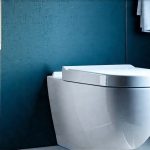Urinary frequency and urgency are common experiences, often causing disruption and concern. While many factors can contribute to these issues – ranging from infections and underlying medical conditions to simply drinking too much fluid – surprisingly everyday household habits frequently play a significant role. Often overlooked, seemingly innocuous routines can subtly aggravate the bladder, leading to increased trips to the bathroom, nighttime awakenings, and a general feeling of discomfort. Understanding these connections is the first step towards managing and mitigating these frustrating symptoms and improving overall quality of life. This article explores some of those common habits and offers insight into how small changes can make a big difference.
It’s crucial to remember that everyone’s bladder is different, and individual sensitivities vary greatly. What triggers one person may not affect another. However, recognizing potential aggravating factors within your daily routine empowers you to observe your own body’s responses and tailor lifestyle adjustments accordingly. This isn’t about eliminating pleasure or comfort; it’s about finding a balance that supports a healthy bladder and minimizes unwanted symptoms. If urinary issues are severe or persistent, seeking professional medical evaluation is always recommended – this article focuses on habits that can contribute to aggravation but does not substitute for proper diagnosis or treatment.
Dietary Culprits & Fluid Intake
Many of us unknowingly consume substances that irritate the bladder throughout a typical day. Caffeine, found in coffee, tea, and even some sodas, is a well-known diuretic – meaning it increases urine production. While moderate caffeine consumption isn’t necessarily harmful for everyone, excessive intake can undeniably exacerbate urinary symptoms. Similarly, alcohol acts as a diuretic and can also irritate the bladder lining, leading to increased frequency and urgency. Artificial sweeteners, found in diet drinks and sugar-free products, are increasingly recognized as potential bladder irritants for some individuals.
Beyond beverages, certain foods can also contribute to urinary aggravation. Highly acidic foods like citrus fruits (oranges, grapefruit, lemons), tomatoes, and spicy dishes are frequently reported triggers. These substances can cause inflammation within the bladder, leading to discomfort and a stronger urge to urinate. Even chocolate, while often enjoyed as a treat, contains compounds that may have a diuretic effect for some people. It’s important to note that food sensitivities play a role; what bothers one person won’t necessarily bother another. Keeping a food diary can be incredibly helpful in identifying personal triggers.
Fluid intake itself isn’t the enemy – staying hydrated is vital! However, timing and type of fluids matter. Drinking large volumes of fluid all at once can overwhelm the bladder, leading to immediate urgency. Instead, spread your fluid intake evenly throughout the day. Also, while water remains the best choice for hydration, consider reducing consumption of other liquids known to irritate the bladder as mentioned above. To learn more about maintaining a healthy balance, explore these hydration habits for optimal urinary balance.
The Impact of Constipation & Bowel Movements
Constipation and urinary issues are frequently linked – often surprisingly so. A full bowel can physically press on the bladder, reducing its capacity and leading to increased frequency and urgency. This is especially true for individuals with pre-existing pelvic floor weakness or other underlying urinary conditions. Furthermore, straining during bowel movements puts added pressure on the pelvic floor muscles, potentially weakening them over time and further contributing to urinary problems.
Addressing constipation is therefore a key component of bladder health. – Increasing fiber intake through fruits, vegetables, and whole grains is essential. – Adequate fluid consumption supports softer stools and easier passage. – Regular physical activity promotes healthy bowel function. If lifestyle changes aren’t sufficient, consulting with a healthcare professional about safe and effective ways to manage constipation may be necessary.
Pelvic Floor Dysfunction & Exercise Habits
The pelvic floor muscles play a critical role in supporting the bladder and urethra. Weakened or dysfunctional pelvic floor muscles can lead to urinary leakage, frequency, and urgency. Certain exercise habits, while beneficial for overall health, can inadvertently put stress on the pelvic floor. High-impact activities like running, jumping, and heavy lifting repeatedly strain these muscles, potentially weakening them over time.
However, this doesn’t mean avoiding exercise! The key is to incorporate exercises that strengthen the pelvic floor alongside other fitness routines. – Kegel exercises, also known as pelvic floor muscle training (PFMT), are a highly effective way to strengthen these muscles. Performing Kegels correctly and consistently can significantly improve bladder control. For those seeking exercise options that don’t exacerbate issues, consider reviewing fitness plans that don’t aggravate the bladder.
Cleaning Product Sensitivities & Environmental Factors
Many household cleaning products contain harsh chemicals that can irritate the bladder, especially when used frequently. Strong fragrances, ammonia-based cleaners, and disinfectants are common culprits. These chemicals can be absorbed through the skin or inhaled, leading to inflammation within the bladder and increased urinary symptoms.
Switching to natural or hypoallergenic cleaning alternatives is a simple but effective way to reduce exposure to potential irritants. – Look for products labeled “fragrance-free” and “dye-free”. – Consider using vinegar and baking soda as natural cleaning agents. – Ensure adequate ventilation when using any cleaning product, even those considered mild. Beyond cleaning products, environmental factors like mold can also contribute to bladder irritation in sensitive individuals. Addressing moisture problems and maintaining a clean, well-ventilated home environment are important for overall health – including bladder health. You might also find it useful to explore daily habits that protect urinary tract health.
It is important to reiterate that this information provides general insights and should not be taken as medical advice. If you are experiencing persistent or severe urinary issues, consulting with a healthcare professional is crucial for accurate diagnosis and personalized treatment. Understanding the connection between your lifestyle and bladder function can also be improved by looking at minimalist daily habits that improve pelvic comfort, which emphasizes simple adjustments.
Furthermore, consider how your evening routines impact bladder health with a review of these tracking evening habits that disrupt flow to identify potential triggers.
Finally, remember that addressing constipation can significantly improve urinary function; learn more about this connection through daily digestive habits that support bladder ease.





















